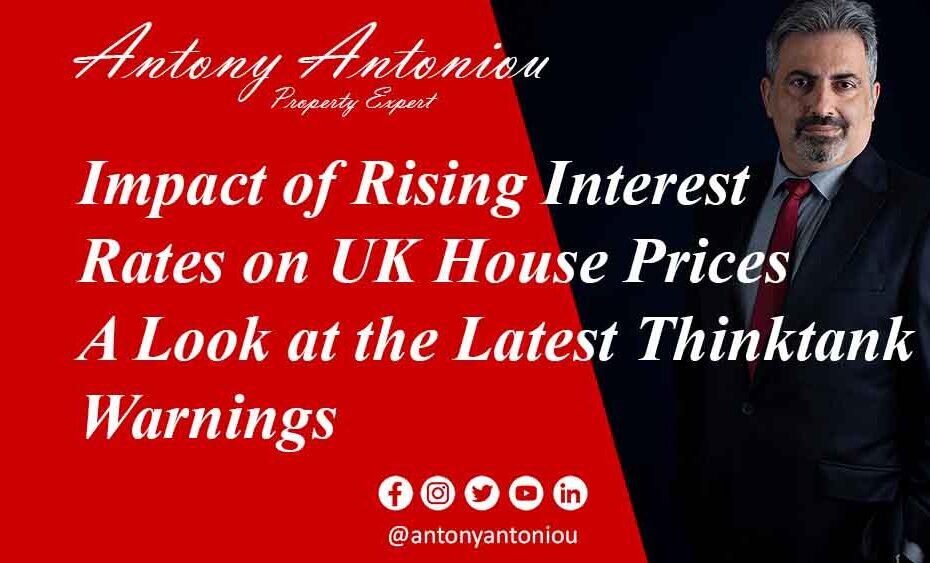Impact of Rising Interest Rates on UK House Prices – A Look at the Latest Thinktank Warnings
Introduction
Recent economic stress tests conducted by the Bank of England have raised concerns about the stability of the UK’s financial system. High inflation and falling property values have been key challenges faced by the banking sector. As a result, interest rates have surged, leading to a decline in household wealth and posing potential risks to the property market. The Resolution Foundation, a prominent thinktank, has recently warned that if interest rates continue to rise, house prices could plunge by up to 25%. In this blog post, we delve into the potential impacts of rising interest rates on UK house prices and explore the winners and losers in this scenario.
The Bank of England Stress Test
Last year, the Bank of England conducted an annual stress test on the UK’s largest banks to evaluate their resilience during an economic crisis. The test simulated a scenario of surging inflation and plummeting property values. While it was designed to identify weaknesses in the banking system, it was not meant to predict actual economic outcomes.
Impact on Inflation and Interest Rates
The UK has been grappling with high inflation, which reached 17% at its peak. However, the inflation rate has recently dropped to 8.7%, though food inflation remains high at 18.3%. In response to economic challenges, the Bank of England has raised interest rates 13 times, reaching 5% with further hikes anticipated.
The Thinktank’s Warning
The Resolution Foundation recently released a report titled “The Peaked Interest?” in partnership with abrdn Financial Fairness Trust. The report analyzes the effects of rising interest rates on household wealth and living standards. It predicts that if the Bank of England continues to raise interest rates, house prices could potentially fall by 25% over the next five years.
Wealth Boom and Impact on House Prices
Over the past few decades, the UK has experienced a wealth boom, with total household wealth increasing significantly. However, rapid interest rate hikes have put an end to this trend, leading to a substantial fall in wealth, approximately £2.1 trillion over the past year. As interest rates continue to rise, the house-to-price earnings ratio is expected to drop from its peak of 8.9 to 5.6, representing a historic low not seen in two decades.
Winners and Losers
The Resolution Foundation’s report highlights that younger generations could potentially benefit from rising interest rates. Higher returns on savings and pensions would offer them a better chance of achieving a decent standard of living in retirement. Additionally, lower house prices would make it easier for young people to enter the property market and for homeowners looking to upgrade.
On the other hand, those with significant mortgages may bear the brunt of these major economic changes. However, the thinktank argues that long-term benefits for younger generations and a fairer distribution of wealth might outweigh the short-term challenges.
Conclusion
The UK economy has been facing challenging times, with the Bank of England conducting stress tests and raising interest rates to combat rising inflation and falling property values. The Resolution Foundation’s warning of a potential 25% drop in house prices over the next five years adds further uncertainty to the market. While young people could find opportunities in a world of higher rates and lower house prices, others may experience difficulties due to existing mortgages. Policymakers need to consider measures to safeguard households from unpredictable economic fluctuations, especially when the future path of interest rates remains uncertain.

